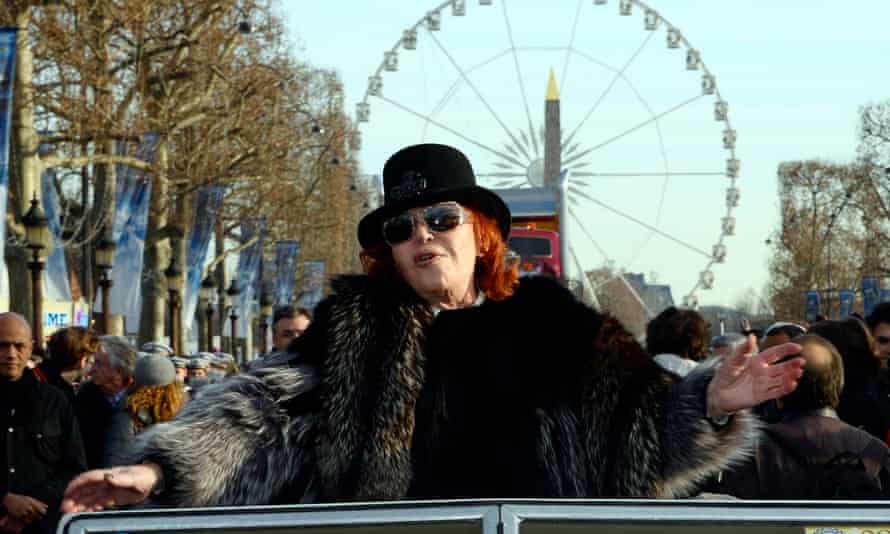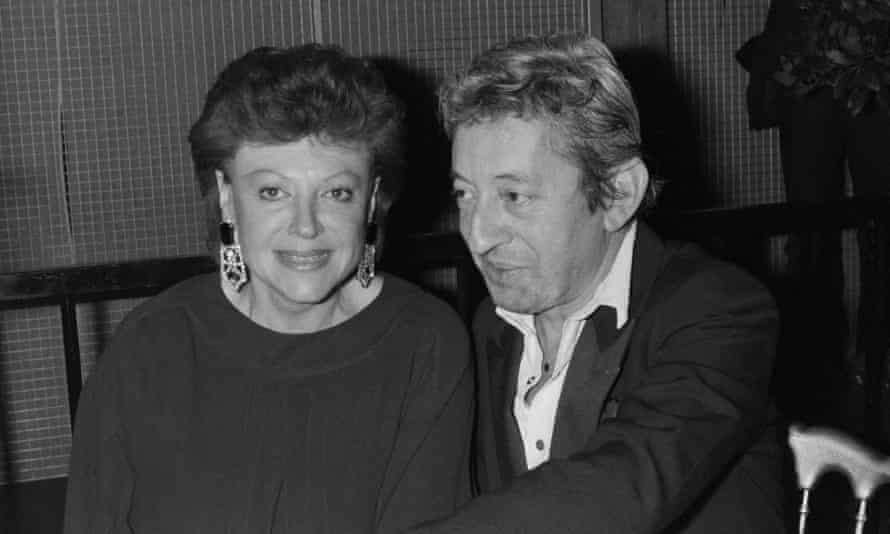In 1950s Paris, Régine Zylberberg, a barmaid, cloakroom assistant and occasional seller of bras in the local market, had an idea that would transform the city’s nightlife and make her the darling of the international jet set.
Fed up with customers at the famous Whisky-à-Go-Go club repeatedly playing the same songs on the jukebox, and remarking that the sound of “couples snogging in the corners” between records killed the atmosphere, she installed two turntables for continuous music.
It was the start of a career as a nightclub owner for the woman who would become known simply as Régine and that would see her credited as creating la discothèque. Régine, nicknamed Queen of the Night, has died aged 92.
From her first club in Paris’s Latin Quarter, Chez Régine, established in 1956, her empire would eventually stretch to more than 20 establishments entertaining the world’s beau monde: the rich; the famous; the aristocratic, including royals, from Buenos Aires to Monte Carlo via Kuala Lumpur, Cairo and Los Angeles.
Her clientele was eclectic but almost exclusively wealthy, powerful and well connected, among them Andy Warhol, Brigitte Bardot, the Rothschilds, the Kennedys, Liza Minnelli, Truman Capote, Marlene Dietrich, Henry Miller, Richard Nixon, the future president Georges Pompidou, the mobster John Gotti and Salvador Dalí.
She dyed her hair flame red and attracted diverse lovers: the actors Robert Mitchum, Warren Beatty, Gene Kelly, Steve McQueen and Omar Sharif, and singer Jacques Brel, as well as sporting stars and alpinists Jean-Claude Killy and Maurice Herzog, the Spanish matador El Cordobés and the Swedish tennis champion Björn Borg.
“I do love champions,” she told French television.
Dancing was her passion: “If you can’t dance, you can’t make love,” she would say, and she famously taught the Duke of Windsor to do the twist.
The rich and famous went to Régine’s, where drinks were sold by the bottle, to see and be seen, but their exclusivity was founded on illusion; a “Full” sign would be put outside each of her clubs even as they opened, a hype that created the demand that saw everyone, however privileged, queue to enter.
“After a certain hour [of the night], it’s sometimes difficult to distinguish a princess from a prostitute. And one doesn’t exclude the other,” she wrote in her memoirs.
Only London failed to fall for Régine’s charms. Her two attempts to open clubs in the city crashed. “The English have no style,” she claimed afterwards.
By the early 80s, Régine also had her own line of perfume, but as times and tastes changed, the clubs closed, and bad investments diminished her fortune. For those who knew her traumatic history, and she made no secret of it, Régine’s self-professed workaholism and search for recognition and respect were rooted in trying to compensate for a childhood blighted by an alcoholic father, an absent mother and the Nazis.

Régina (she became Régine later) was born in Anderlecht, Belgium, to Tauba Rodstein and Joseph Zylberberg, both Polish Ashkenazi Jews. Her parents had lived for eight years in Argentina and moved to Paris when Joseph, a drinker and gambler, lost the family boulangerie in a poker game. Rodstein soon gave up and returned to Argentina, leaving Régina and her brother, Maurice, in their largely absent father’s care. During the Nazi occupation of France, the children went into hiding in a series of foster homes, including a convent in Aix-en-Provence where Régina was beaten by other girls for being Jewish.
At the age of 14, she was working at a refuge for the elderly in Lyon where she fell in love with the owners’ son, Claude, nephew of Bernard Schonberg, the chief rabbi in the city. In 1944 he was on his way to the synagogue to discuss marrying her when he was arrested by the Nazis and dispatched to the concentration camps, where he died. Shortly afterwards, aged 16, Régina married Leon Rotcajg, with whom she had a son, Lionel, but they divorced four years later.
In postwar Paris, Régine worked in the café-bar-brasserie in the 20th arrondissement established by her father, where she also learned to cook. After opening Chez Régine, in France she also became well known as a singer and occasional actor, starring in films by the directors Claude Lelouch and Claude Zidi and recording a number of albums.
Having sold all her nightclubs by the late 2000s, Régine declared herself “ruined”. However, she went on to harness her connections for charitable causes, including the fight against drug abuse, wrote three volumes of a memoir and returned to singing.
In 2015, she set off for her first concert tour, performing just some of the 300 songs she claimed had been written for her during her lifetime. “For a long time, songs were just a hobby. But now I realise that the stage has been the most important part of my life,” she said.
Asked by a French journalist why she had not retained her family name, and went by Régine, she responded: “Can you imagine someone saying ‘tonight, we’ll meet at the Régina Zylberberg…’? By the time you say it, the night is already over.”
In a profile published in New York magazine in 1977, Régine said her penchant for throwing spectacular events was to make up for all the birthday parties she never had. “One by one, I have filled the dreams of my childhood,” she told the magazine.
She married Roger Choukroun, a computer engineer, in 1969 and divorced him in 2004, but despite her marriages and many lovers, Régine would always describe Claude Schonberg as her “first and only true love”. Her son, Lionel, died in 2006. She is survived by a granddaughter, Daphné.

